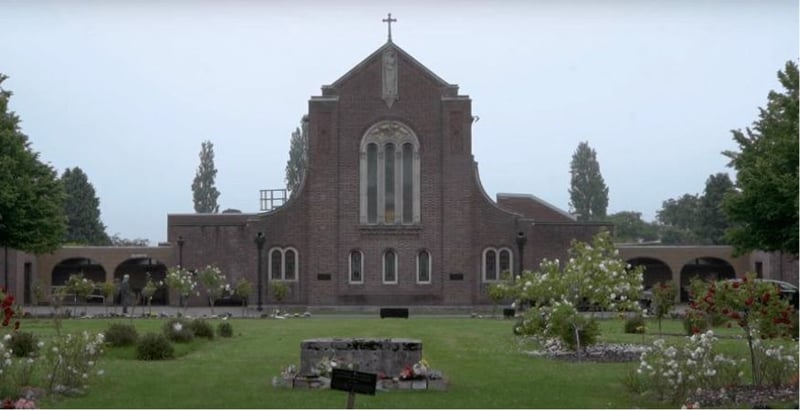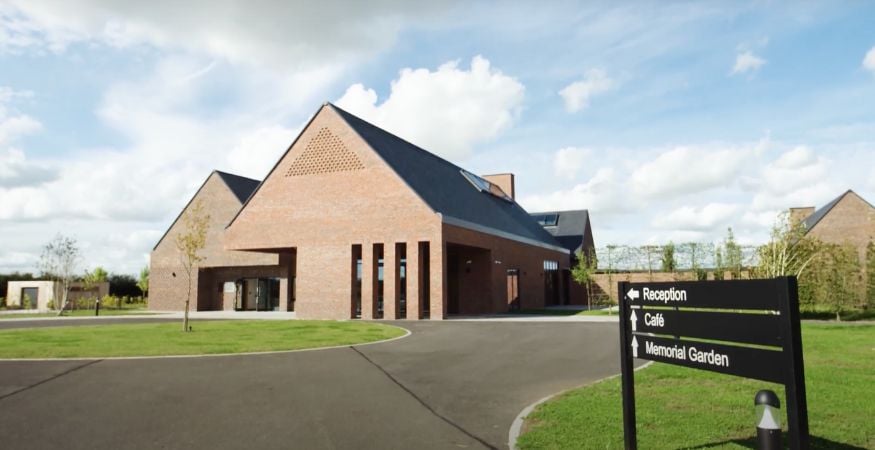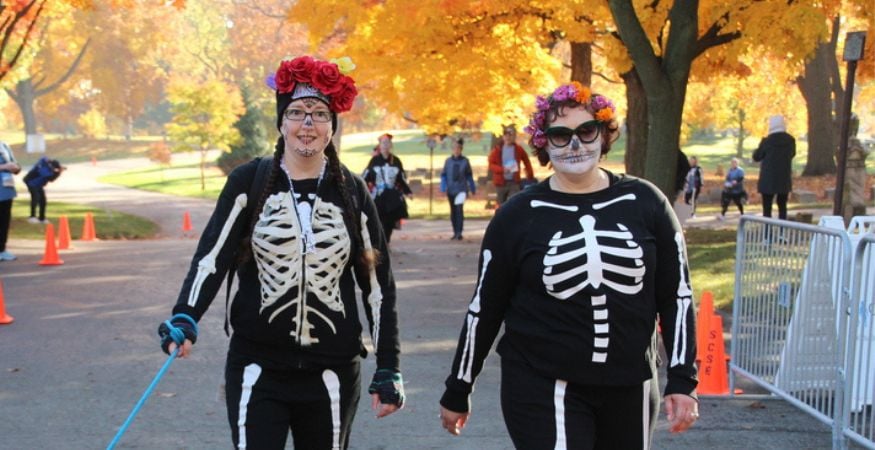Efficient Cemetery Trust Fund Management with PlotBox
Did you know Trust Funds can be managed within PlotBox? Enjoy flexibility in moving monies in and out of relevant trust funds.
We’ve seen first-hand the benefits of shared learnings that come from a commitment to world-class global deathcare development. Here are a few examples.

We're eager to discover more about your cemetery and explore the possibilities of integrating PlotBox seamlessly into your operations.
Let's TalkWhether it’s through digital transformation and embracing emerging technologies, or creating unique spaces that encourage engagement, we’ve seen first-hand the benefits of shared learnings that come from a commitment to world-class global deathcare development.
With that in mind, we look at just some of the many examples of how our partners across the world have been leading the way in deathcare provision.

Our journey begins in the Wirral, UK, with innovation that emphasizes efficiency, sustainability, and a connection to nature. Here is a bereavement services operation exploring how innovative technologies and thoughtful practices can elevate the cremation experience for families while minimizing their environmental footprint.
With an aim to “provide a peaceful, well-managed attractive crematorium and cemetery using the criteria of Green Flag”, the bereavement services team at Wirral Council in the North of England has seamlessly integrated cutting-edge technology with the best use of their assets.
The installation of a freefall cremator at their Landican facility ensures good heat storage capacity and the associated benefits of combustion efficiency, along with the introduction of air pollution control technology and reduction in gas consumption, not only increasing operational efficiency but also significantly reducing pollutants - all of which underscores the crematorium's dedication to environmental responsibility. Here, end-of-life arrangements align with a commitment to a greener future.
What also sets Wirral apart is its meticulous attention to detail, extending beyond the cremation process itself. For example, the recent inclusion of a selection of herbs around the crematorium grounds, providing a tranquil space for reflection and remembrance. Families can stroll through fragrant pathways, finding comfort amid the natural beauty carefully cultivated on the crematorium grounds.
For Wirral, innovation isn't just about adopting new technologies, it’s also about making the best use of available assets in order to stand the test of time. The crematorium has seamlessly integrated modern advancements with longstanding practices, creating a timeless space for families to commemorate their loved ones. This delicate balance between tradition and innovation defines the enduring appeal of cremation services within the region.
Learn more about PlotBox and Wirral.

In the picturesque landscape of Northern England, the recently opened Maple Park, near Thirsk stands as a great example of a crematorium facility operating sympathetically in relation to its natural environment.
With a beautifully landscaped memorial garden and well manicured lawns, lined with Maple Trees that offer views over the Hambleton Hills, Maple Park goes beyond what many might consider a typical crematorium space.
Maple Park’s beautiful building was designed to fit in with the local surroundings - subtle and not imposing. And in person, that’s very much the case - a light and airy space with natural colors and high ceilings, brightened by light streaming in from a number of large windows, reflecting off wood paneling.
It truly is an environment that makes people relaxed as soon as they enter the space, providing a calming atmosphere during a difficult time.
Step into Maple Park’s memorial garden and you will find more than just a place of memorialization; you will experience the serene atmosphere of a memorial garden seamlessly integrated into the natural surroundings. The thoughtful design creates intimate areas for quiet reflection and contemplation, allowing families to find solace amid carefully landscaped grounds that create a delicate balance of flora and fauna.
Subtly placed within the central space is a digital screen providing details of memorialization options - a great example of how technology and nature can interact to provide an enhanced experience.
Beyond being a place for families to pay their respects, Maple Park has transformed its space into a community hub. The on-site café is not just open to mourners, but provides a welcoming space offering respite for dog walkers, neighbors and families alike. The result is a dynamic environment that fosters connectivity, turning a place of grief into a center for shared experiences.
Maple Park shows the profound impact that nature, community, and innovation working in harmony can have on the deathcare experience. As families navigate the challenging path of saying goodbye, spaces such as those created by Maple Park provide not just a service, but a sanctuary that reflects the interconnectedness of life and loss.
Learn more about PlotBox and Maple Park.

Forest Home Cemetery and Arboretum is an urban greenspace in Milwaukee that has been challenging the conventional image of a burial ground by using its space as a vibrant community hub.
Created in the garden rural style, with many trees and winding paths, the team has captured and maintained the topography of the area, funding a number of preservation projects through donations received from community projects.
A historic garden cemetery founded in 1850, and one of the oldest and largest in Milwaukee, Forest Home possesses a great deal of history from which to draw upon.
For the Forest Home team, looking at that history through their value of human dignity, means that life continues to have value well after it's been lived, and as such, view it as their responsibility to help to show that to the community. To that end, they have created a number of different programs in the last several years focused on celebrating that life.
During their Memorial Day services for example, they typically have living historians, while their recent Spirits of the Silent City event featured professional actors taking on the roles of their particular chosen character within the cemetery.
Managing an urban greenspace can be a challenge. With 2,600 trees of over a hundred species in the urban middle of Milwaukee, Forest Home is larger than any city park in Milwaukee.
Carrying out their “ecological stewardship”, as they put it, they have invited community members in to show them that they are not just a place of memorialization, but rather they are also here to create a peaceful place to enjoy.
Within that context they have formed partnerships with local community groups as a way of bringing people into the space. Having engaged with their local municipality, (who have a goal of planting several million trees), they are working to meet their own goal of planting one thousand trees.
The plan is to refresh their canopy with another set of trees again for the community that, 100 years from now, people will be able to continue to appreciate the nature of their campus.
Most recently, Forest Home has entered into several different green initiatives with a local partner, for example, identifying areas where they can support the environment by keeping fresh rain water from going straight back into the lakes and letting the ground do what it's supposed to do.
Creating a positive environmental impact is clearly important to the team in terms of their values. The way they have defined that is that celebrating life at the cemetery extends wherever possible in supporting the world that humanity depends on.
A key fixture on Forest Home’s calendar is their annual Dia de Los Muertos festival - a highly celebrated event in the Hispanic community, with families coming to the graves of their loved ones, building ofrendas [offerings] and altars, as a way to give space for and be present with loved ones.
Born out of their former Director’s desire to better connect with the community, combined with a motivated community member who had connected with the cemetery, they formed a committee and designed a small event in 2019 as a march with Aztec dancers and some graveside ofrendas which had 500 guests attend. Now, a hugely popular volunteer-run event, Forest Home’s Dia de los Muertos festival attracts between 3 and 4,000 visitors.
Seeing the opportunity to begin the discussion on how cemeteries can reimagine their role in modern society, Forest Home realizes that they don't have to be a place that only memorializes loved ones, but a place that does a phenomenal job of celebrating life in a myriad of different ways - whether it's a small family mourning loss of a loved one, or a large community realizing that remembering life in this way is important.
We have been lucky enough to see many more examples in action of how our cemetery and crematory partners have introduced innovations and new ways of thinking to enhance their services or to meet challenges.
In Ireland, we were fortunate to have helped deliver a revolutionary approach to cemetery interaction - incorporating a visitor’s center, equipped with digital maps, genealogy information, and interactive ‘walk-to-grave’ features, transforming the way families connect with their departed loved ones.
One of the key strengths in this approach lies in the seamless connection between technology with the rich historical data held by the cemetery - not only allowing visitors to more easily navigate the site, but to delve into the history of the city, its traditions and its inhabitants - a form of visual story-telling transforming the interaction into a dynamic, engaging experience.
In Adelaide Australia, Centennial Park has created a peaceful and reflective community space open all year round for people of all backgrounds to commemorate loved ones and to experience their tranquil grounds first-hand.
With regards to the lived experience of families and the grieving process, they have built Contemplation Court - the first cemetery in Australia to offer such a space - a facility that allows friends and family to visit loved ones for up to six months after cremation and until final decisions are made about more permanent memorials.
In addition, Centennial Park has created Jubilee Complex, designed by a local architect Geof Narin to accommodate multi-denominational funeral services and is a winner of several architecture awards, as well as having undertaken a number of environmental initiatives.
A truly inspiring space.
Learn more about Centennial Park.
Staying in Australia, and while some cemeteries may look different, the challenges around land availability mirrors the global challenge of limited land for burial.
With the demand for resting places growing while available space diminishes, within this constraint, cemeteries are implementing innovative cemetery management solutions, optimizing existing land and addressing the issue with forward-thinking perspectives.
With the deathcare industry heavily regulated, cemeteries operate - as in every region - within a complex framework of rules and guidelines. With some states, for example, allowing burials in perpetuity, while some allow for the re-use of graves once the interment right expires, the introduction of technologies that can facilitate the administration and communication of grave rights is becoming essential.
Our journey across the globe continues to be nothing short of inspirational.
As we've crossed borders, we've discovered that deathcare, far from operating a vacuum, is a tapestry woven with threads of tradition and innovation.
The challenges cemeteries and crematoriums face transcend geographical boundaries, with innovation emerging as the key enabler to progressive deathcare, and one which underscores the delicate balance between tradition and modernity.
From embracing alternative memorialization options to navigating stringent regulations, deathcare providers continue to demonstrate a commitment to honoring cultural practices while innovatively addressing contemporary challenges. Whether in the historical landscapes of the UK or the dynamic urban settings of the US, providers have showcased the importance of preserving the essence of tradition while embracing change.
Cemeteries, once perceived as solemn resting places, are now evolving into vibrant community hubs. Urban green spaces host diverse events, a shift that embodies a broader understanding that deathcare extends beyond individuals, becoming an integral part of modern society.
Long may it continue.
Did you know Trust Funds can be managed within PlotBox? Enjoy flexibility in moving monies in and out of relevant trust funds.
Discover how to overcome the challenges of keeping your combo connected by breaking down silos and improving communication.
We explain how a single cemetery management system can help funeral processes and ensure future growth for funeral home combo service providers.
Be the first to know about our new resources and blogs